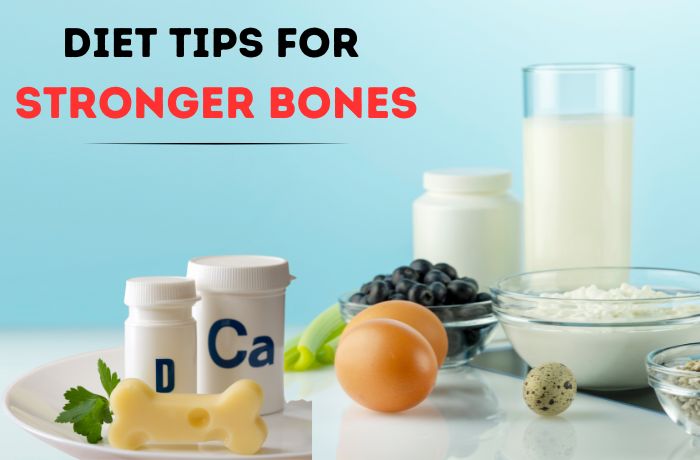Maintaining strong bones is essential for a healthy, active life, but many people neglect the role of diet in bone health. The right diet can have a significant impact on bone density and strength, reducing the risk of fractures. In this blog, we’ll look at the key nutrients that are important for bone health and provide practical nutrition tips to help you maintain strong bones.
1. Understanding Bone Health
Bone structure and function
Bones are living tissues that provide structure, protect organs, anchor muscles, and store calcium. The skeletal system is made up of different types of bones, each of which plays a critical role in movement and support. The health of our bones is essential to our overall well-being.
2. Factors that affect bone health
Several factors affect bone health, including age, genetics, physical activity, and diet. As we age, bone density naturally decreases, so it is important to adopt a bone-healthy lifestyle early on. Genetics also play a role, but lifestyle choices can have a significant impact on bone strength.
3. Essential nutrients for bone health
1. Calcium :
Calcium is the foundation of bone health. It’s the primary mineral found in bones, and a deficiency can lead to weakened bones and an increased risk of fractures.
Importance: Essential for maintaining bone density.
Recommended Daily Intake: Adults typically require 1,000–1,200 mg per day.
Best food sources: Dairy products (milk, cheese, yogurt), leafy greens (kale, spinach), and fortified foods (orange juice, plant milk).
2. Vitamin D :
Vitamin D is essential for calcium absorption and bone growth. Without sufficient vitamin D, bones can become thin and brittle.
Importance: Increases calcium absorption in the intestines.
Recommended Daily Intake: 600–800 IU per day for most adults.
Sources: Sun exposure, fatty fish (salmon, mackerel), fortified foods (cereals, milk).
Must read: Common Orthopedic Injuries and Treatments
3. Magnesium :
Magnesium plays an important role in bone structure and in converting vitamin D into its active form, which helps with calcium absorption.
Importance: It helps with bone formation and mineralization.
Recommended Daily Allowance: 310-420 mg per day for adults.
Sources: Nuts (almonds, cashews), seeds (pumpkin, chia), whole grains (brown rice, oatmeal).
4. Vitamin K :
Vitamin K is essential for bone formation and helps proteins bind calcium in the bones.
Importance: Essential for the formation of bone protein.
Recommended Daily Intake: 90-120 mcg per day for adults.
Sources: Leafy vegetables (kale, spinach), broccoli, Brussels sprouts.
5. Protein :
Protein is needed for bone repair and rebuilding. Adequate protein intake supports bone density and reduces the risk of fractures.
Importance: Builds and repairs bone tissue.
Recommended Daily Allowance: 46-56 grams per day for most adults.
Sources: Meat, dairy products, legumes, nuts, seeds.
4. Orthopedic Diet Tips for Stronger Bones
1. Eat a balanced diet :
A balanced diet rich in a variety of nutrients supports overall bone health. Include a mix of fruits, vegetables, lean proteins, and whole grains to ensure you’re getting a wide range of nutrients.
2. Dietary Supplements :
While it’s best to get nutrients from food, supplements may be helpful if you have trouble getting enough of the nutrients you need through diet alone. Talk to your doctor or health care professional before starting any supplements.
3. Hydration :
Water is important for overall health, including bone health. Proper hydration ensures that nutrients are effectively transported throughout the body and waste products are efficiently removed.
Conclusion :
Maintaining strong bones requires a combination of a nutritious diet, regular exercise, and a healthy lifestyle. By adding these orthopedic nutrition tips to your daily routine, you can significantly improve your bone health and reduce your risk of fractures and osteoporosis.
For personal guidance and more information on maintaining strong bones, contact Dr. Rajeev Gawhale, an orthopedic doctor in Phursungi. Dr. Gawhale can provide recommendations based on your specific health needs and help you develop a complete plan for optimal bone health. Take the first step toward stronger bones by scheduling an appointment with Dr. Gawhale today.






